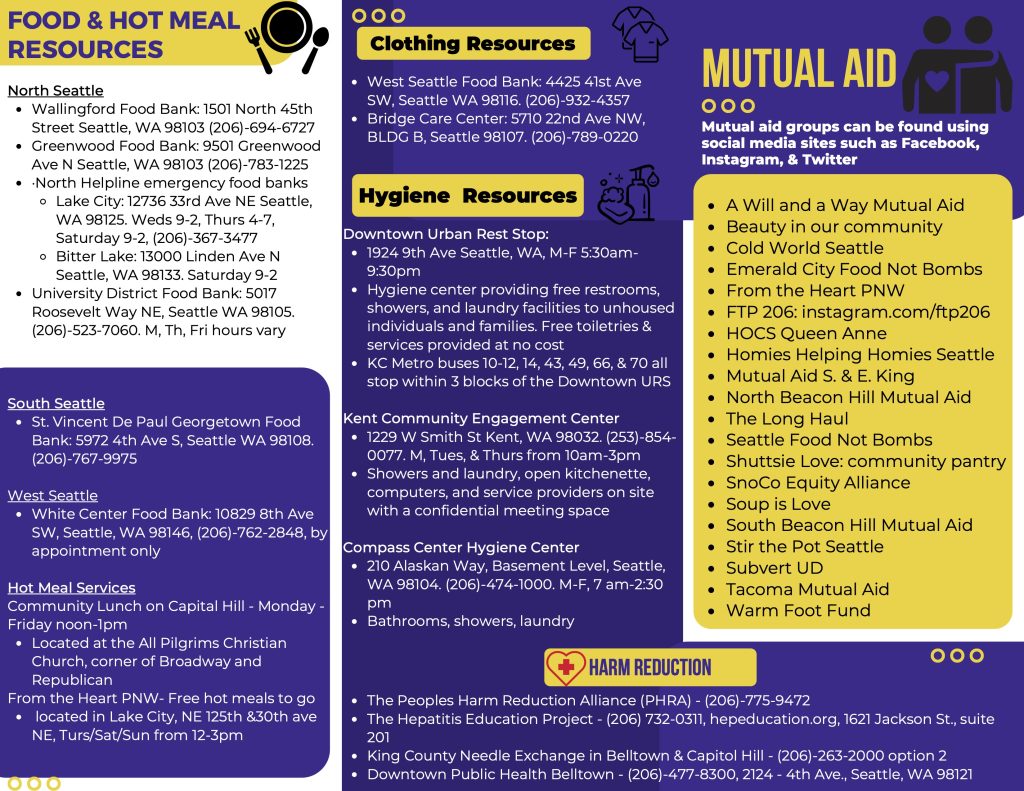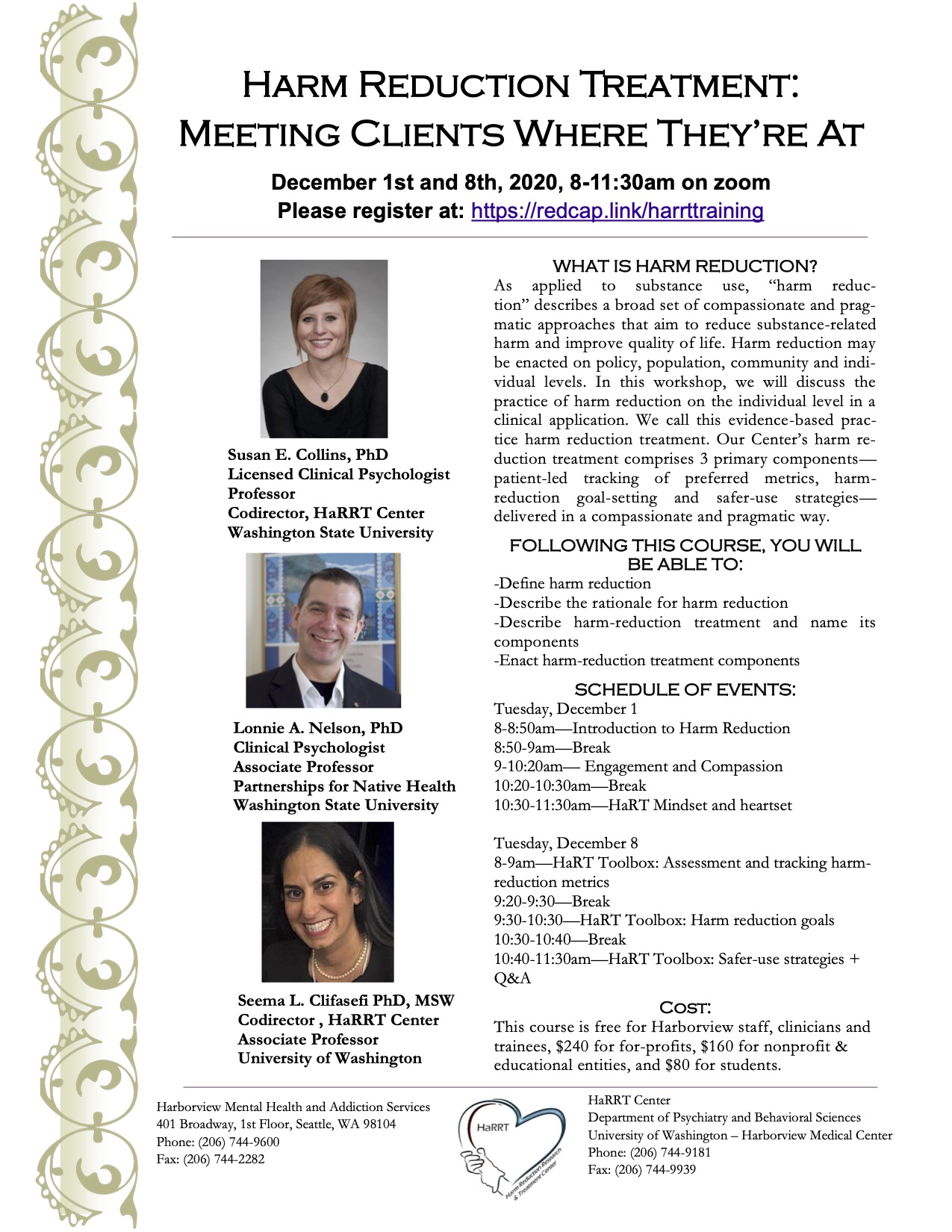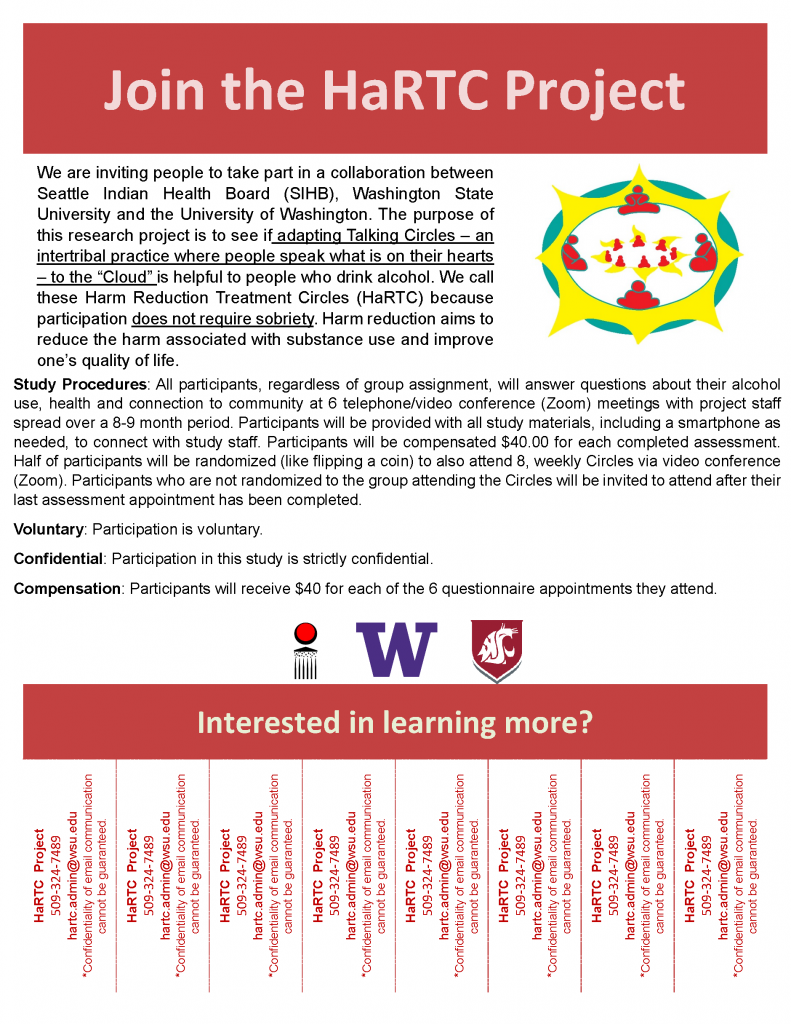We have posted a full time, Research Study Assistant role through WSU to work in collaboration with the UW HaRRT Center on our studies that intersect Native health and harm reduction treatment for substance use disorder. Currently, the primary projects on which this person will be assisting include randomized controlled trials of patient-centered and culturally aligned substance use interventions that we have codeveloped with community members with lived experience of substance use disorder and the community-based agencies that serve them.
The Research Study Assistant will be responsible for answering our study hotline, meeting with community partners and behavioral health treatment sites; ordering, managing and shipping materials to sites; and conducting repeated study interviews with participants regarding their sense of cultural connection, their alcohol use and related harm and their health-related quality of life.
We are looking forward to talking to applicants who have experience working in Native communities, care deeply about the Native community and are excited to support a more culturally aligned and acceptance-based way forward to working with people experiencing alcohol-related harm. Please forward the job description link below to your respective networks.



